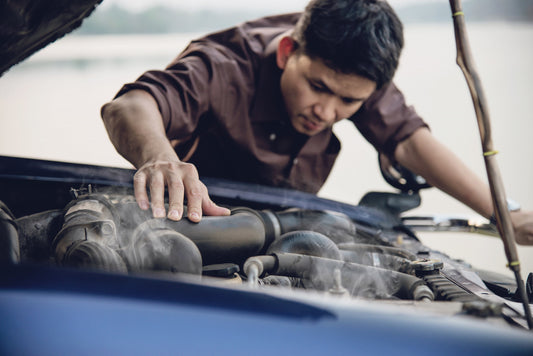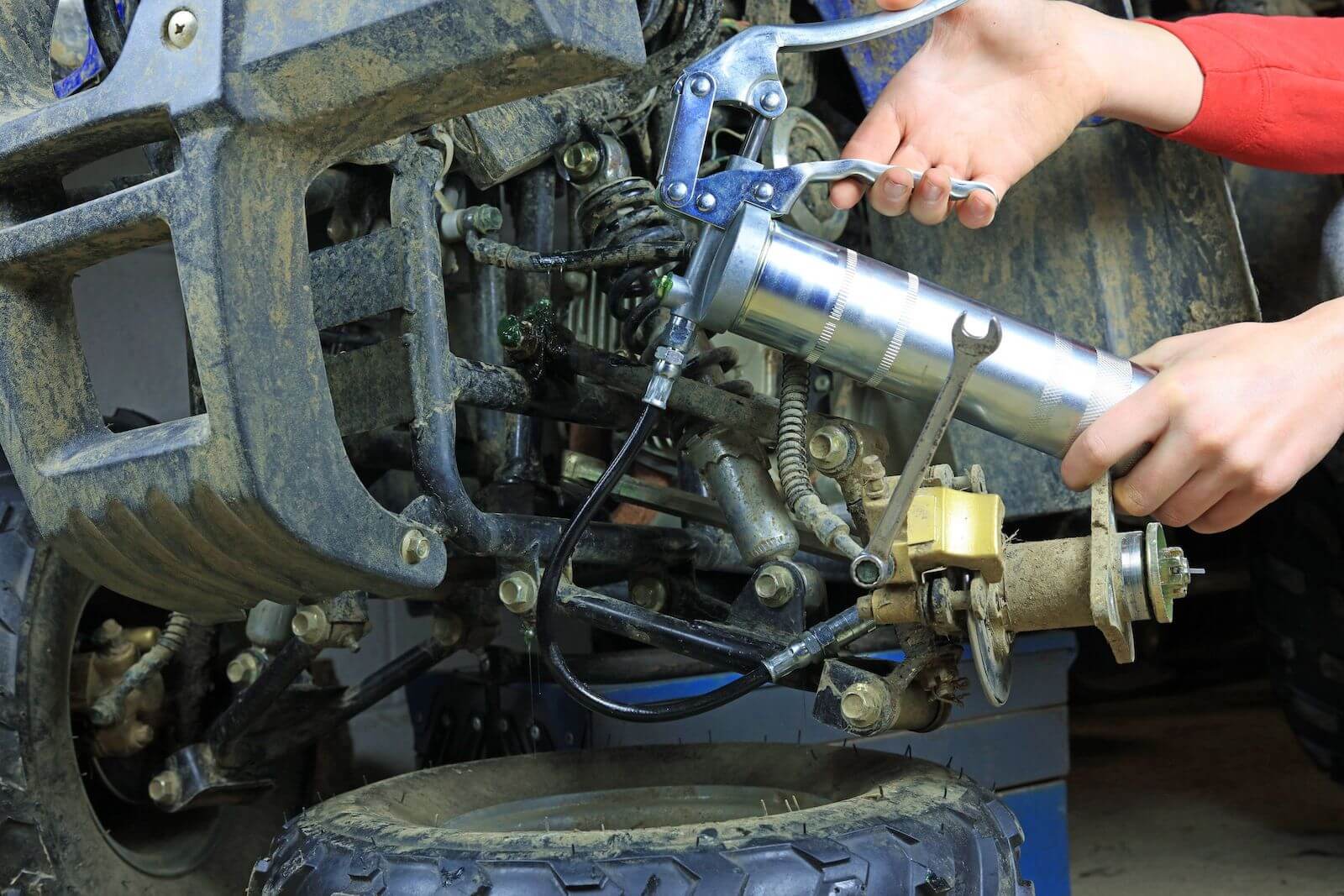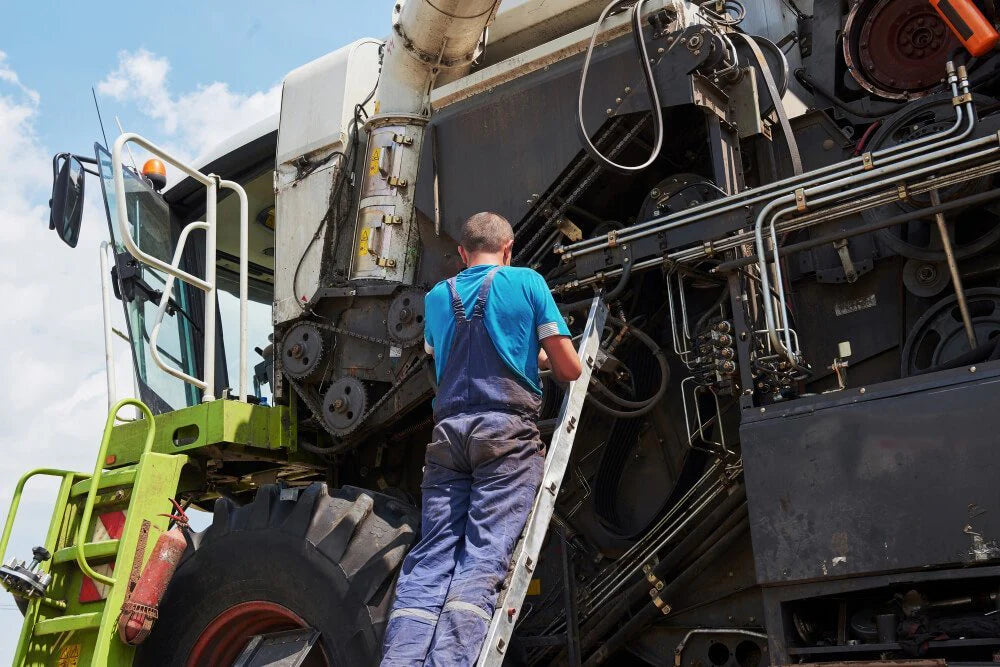Spring is a time of anticipation for many tractor and DIY enthusiasts. Lets face, some of us don’t get to use our tractors enough during the winter months and we have withdrawals. If you are part of this group, don’t worry, it’s a big group and spring is coming in fast. Soon you will be back on your 4 wheel drive chariot that doubles as a workhorse and the withdrawal symptoms will instantly subside.
However, before turning the key on your tractor here are some quick spring season tips every tractor owner needs to know.
1. Frost Check
In many northern areas of the United States the ground freezes in winter and doesn’t thaw out until late spring.

So before you start a project you have to find out if there is frost (frozen ground/dirt) in the area you will be working. However, it is important to understand that looks can be deceiving when checking for frost. The ground may look dry or even muddy to the eye, but frost can be in the ground below the top layer that has thawed.
Why is it important to check for frost?
- If the ground is still frozen, you could damage your machine if you try digging.
- Tillage equipment that is pulled behind a tractor can be damaged if frost is present in the soil.
- Patchy frost greatly increases the chances of getting your tractor stuck in the mud.
- A muddy layer can form on top of frozen soil, creating an extremely slippery and dangerous situation.
2. Perform a Tractor Inspection
Take a walk around your tractor and get to know it. The more familiar you are with your tractor the quicker you will notice when something is out of place, broken, or bent.
Things to look for when performing a tractor inspection:
Check out the tires
Do they look flat? Are the side walls cracked? It is crucial for the operator’s safety that a tractor’s tires be properly inflated and in good condition.

If a tire blows out due to improper inflation or damage it could cause the tractor to roll over, especially if the tractor is lifting or on a side hill.
Check the wiring for damage
Over long periods of non-use all kinds of critters love to chew on the plastic coating of wiring and once the bare wires are exposed it can cause the wiring to short out, affecting whether or not the electrical system of the tractor works.
Random fact: mice, squirrels and porcupines are the biggest offenders when it comes to animals that cause wiring damage.
Does the tractor need to be greased?
When performing the inspection keep an eye out for any pivot points, fittings, or bearings that look like they need grease. Anyone who greases will miss a zerk fitting from time to time and an inspection is a great time to make sure you are hitting all the fittings.
If you are unsure of what grease to use, we recommend that you use a mess free Lube-Shuttle® grease gun with G200EP grease. This combination will not only make sure the grease goes in the fitting and not on your hands, but the G200EP grease is exceeds all the requirements of OEMs for tractors. So, you don’t have to worry about whether the grease you are using is up to the task.
3. Let the Tractor Warm Up Before Using It
When you finally go to start your tractor:
- First make sure it is in park.
- Plug in the block heating or use the glow plugs (glow plugs pre-heat the air going in the engine to make starting easier)
- Check all the fluids and add if necessary. i.e., engine oil, hydraulic oil, coolant, etc.
- Start the tractor and let it warm up before use!! If the tractor sat for a long time the lubrication film left by the engine oil may have degraded. The only way to avoid damage is to let the tractor warm up and the lubrication film to be restored. You can also add additives like AirTec Micro Ceramic to the engine oil to prevent damage, this additive is rated for long term metal adhesion, so it prevents the lubrication film from being degraded. Once started, let the tractor run at an idle for 2 minutes before use!
4. The Controls Might be “jerky” until the Hydraulic Oil is Warm
During springtime the days are nice, but nights can still get a little chilly so the hydraulic oil may be cold when you go to use your tractor. Cold hydraulic oil can cause the hydraulic oil pump (and/or hydrostatic drive) to sound louder than normal and in some cases “whine” (similar sound to waking a teenager up at 4 am).

Until the hydraulic oil is at operating temperature the controls may also be jerky or slightly different in how they respond. So, take a little extra caution and operate the tractor at a slower pace until the hydraulic oil is warmed up and everything is responding normally.
5. Safety
Safetyis the most important factor of operating a tractor so don’t take any chances — know your tractor and its capabilities and know your surroundings. If something feels unsafe, stop and find a way that feels safer or ask an expert.
Lastly, enjoy the time you spend on your tractor working your land. There is something extremely fulfilling about working the land and being a steward of the property. So don’t forget to look at what you accomplish and take pride in it.






